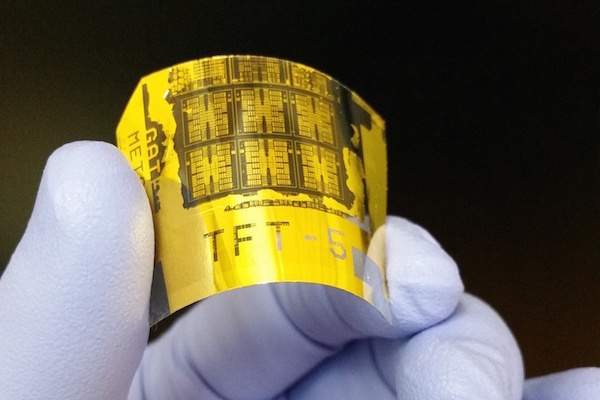We can learn a lot from nature in the realm of imaging. We’ve seen researchers at Washington University in St. Louis take cues from the mantis shrimp, a creature with depth perception in each eye and four times the color receptors of humans. Now, at the University of Wisconsin, Madison, bioengineers are setting records with a new phototransistor that takes simple ideas from the eyes of mammals.
 Phototransistors are basically light sensors. They detect intensity and wavelength of light and then release a proportionate amount of electrical energy. Traditionally, phototransistors are constructed much like other computing components – that is, on a flat metal surface. Professor Zhenqiang "Jack" Ma challenged this norm, noting the curved and flexible structure of mammalian eyes.
Phototransistors are basically light sensors. They detect intensity and wavelength of light and then release a proportionate amount of electrical energy. Traditionally, phototransistors are constructed much like other computing components – that is, on a flat metal surface. Professor Zhenqiang "Jack" Ma challenged this norm, noting the curved and flexible structure of mammalian eyes.
Ma created a phototransistor on silicon, allowing it to bend in nearly any way imaginable. "We actually can make the curve any shape we like to fit the optical system," Ma says in a Madison press release. "Currently, there's no easy way to do that."
This intuitive development approach proved to be very effective as well. Ma’s silicon phototransistor outperforms all existing phototransistors in terms of sensitivity and response time. This is partly due to its flexibility, but in fact the choice of silicon over rigid metal offers yet another advantage.

(Professor Ma’s silicon phototransistor, courtesy UW Madison and Jung-Hun Seo)
"In this structure — unlike other photodetectors — light absorption in an ultrathin silicon layer can be much more efficient because light is not blocked by any metal layers or other materials," Ma says. He envisions applications in several areas of commercial imaging, such as digital cameras, surveillance systems, smoke detectors, and even satellites. His team is currently patenting the technology.
Ma’s work was supported by the US Air Force and the Wisconsin Alumni Research Foundation. For further reading regarding funding for the University of Wisconsin, Madison and its studies, click on the link below.
Biotechnology Calendar, Inc. visits the University of Wisconsin campus for two of our BioResearch Product Faire™ events each year. We hold our Madison BioResearch Product Faire™ each year; coming up we'll have our 17th annual Madison BioResearch Product Faire™ on September 9th, 2016. For more information about this event, please follow its link. Biotechnology Calendar is a full service event company that has produced on-campus, life science research trade shows nationwide for the past 20 years. We plan and promote each event to bring the best products and services to the finest research campuses across the country. If you’re interested in attending a show closer to home, please look at our 2015 schedule or our new 2016 schedule of events to find a nationwide selection.


